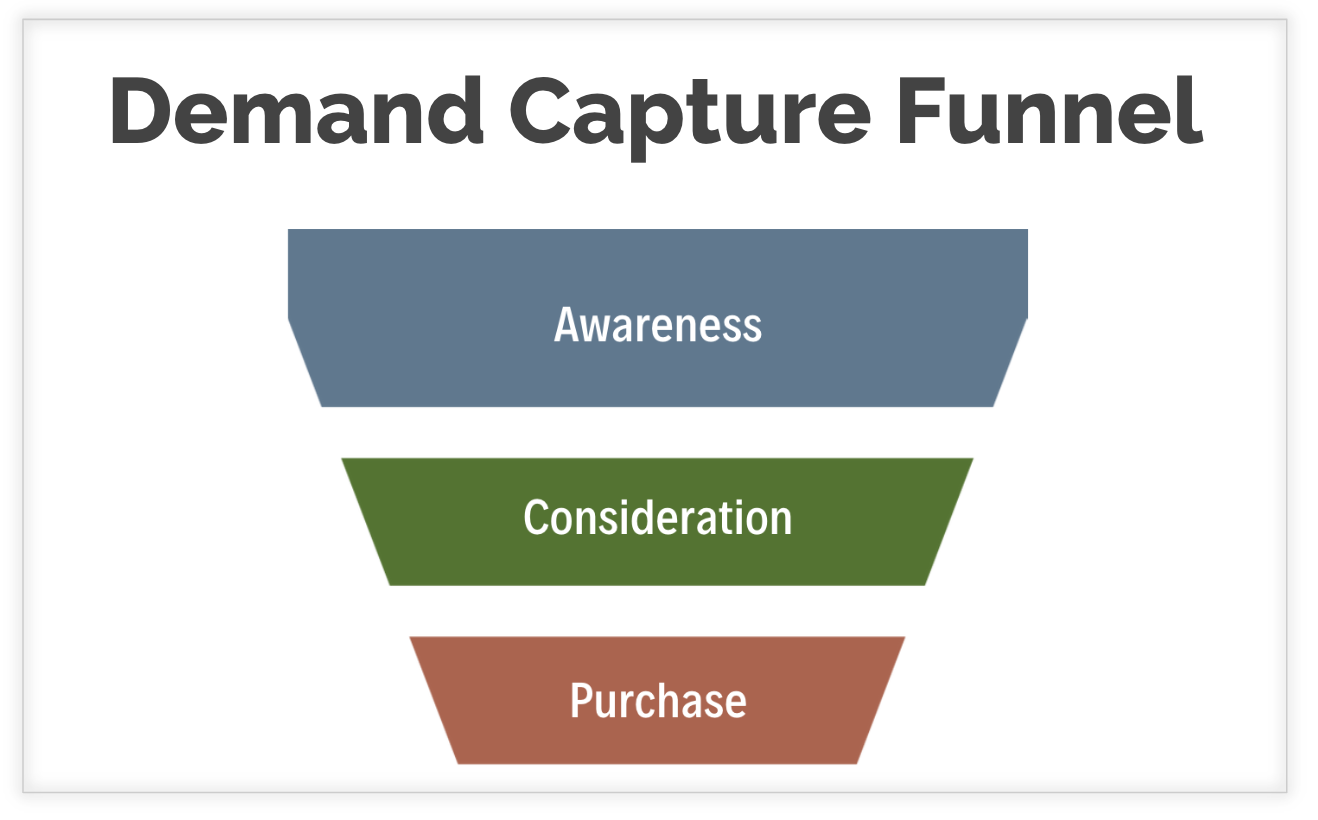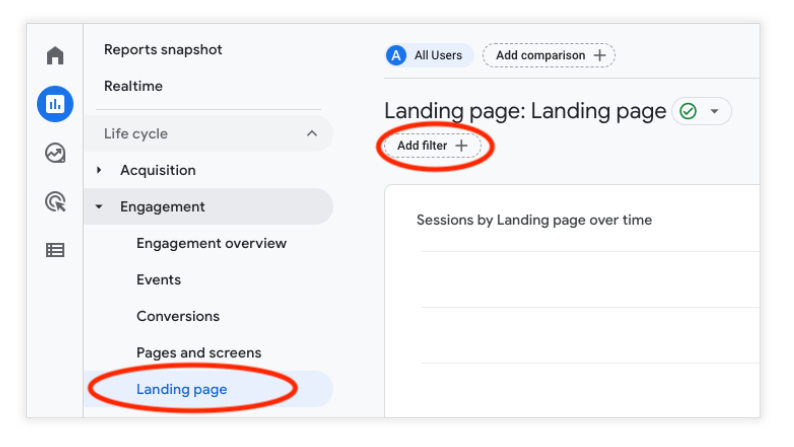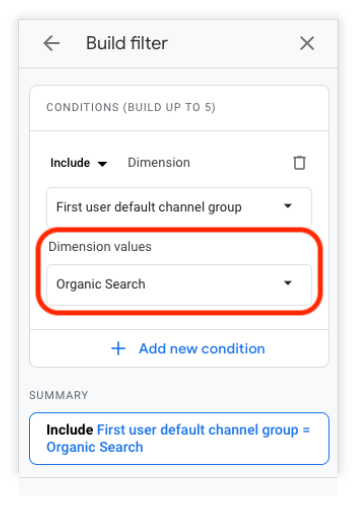SEO for Accountants: How to Drive More Organic Traffic in 2023
Outside of referrals, search engines are the top way buyers find professional services firms. Accountants who invest in search engine optimization (SEO) today will be poised to generate leads for years to come. This article will give a comprehensive overview of SEO for accountants, and how your firm can devise a strategy to earn more clicks from organic search.
The marketing value of SEO for accountants
Buyers search online about a specific tax problem. They find useful information on your website. Then, they fill out a contact form and schedule a call. After the call, they become a client.
This is a very realistic series of events and a lead flow that can grow with more web traffic.
There are four main ways of driving web traffic:
Word of mouth (direct traffic)
Paid advertising
Referral traffic (like social media)
Organic search
If your firm benefits from a strong brand that results in high direct traffic and many referral leads, that’s a good place to be. But if your goal is to grow, referrals might not be enough. Paid advertising can be expensive and short-lived. Organic social media can be time-intensive to do it properly.
That leaves organic search.
Investing in SEO now can result in sustained monthly traffic to your website. Over a long enough time period, SEO is arguably the most cost-efficient digital marketing investment you can make. Being seen high up in search results builds trust and credibility with clients, and local SEO for accountants can help attract clients in specific geographic areas.
Did I lose you? No? Good. Since you made it this far, you probably want to learn how you can better optimize your accounting firm's website. I’m offering a free website SEO audit designed exclusively for qualified accounting firms. Contact me to learn more.
SEO for accountants should be rooted in research
Before you start creating content or even updating your web pages' technical aspects, you must first understand why your buyers buy and how they make purchase decisions. This will help you focus your SEO strategy on buyer search intent and allow you to map website content to the customer journey.
When researching buyers of accounting services, the method you use to collect data will depend on the *type* of data you need. In this kind of research, there are two types of data:
Primary — This data does not exist. You must go out and source it.
Secondary — This data may be available from the organization that collected it or via a third party.
Read More: B2B Market Research Methods for Audience Insights
Data from primary sources is likely the best way to guide your content creation strategy. For example, frequently asked questions from clients and prospects may be a good topic in a blog post. Chances are that if one client asks a question, others are.
Keyword research is a form of secondary research that can be used to find clusters of keywords to focus on for new content and refresh existing content. Tools like SEMRush can be used to find new keyword opportunities, but you can also find relevant keywords to target simply by looking at Google’s search engine results pages. For example, the screenshot below shows the “people also ask” feature on the results page for “accounting firms near me.”
Keyword research should be an ongoing part of SEO for accountants. Especially because tax laws and economic situations can change, offering new content opportunities for accounting firms. Another tool free for accounting marketers to use is Google Trends. To illustrate, the screenshot below shows the trend for “accounting services” relative to “tax prep” in the United States over the past five years.
Align SEO keywords, content, and customer journey stage
Ok, so you have a list of keywords. Now what? The next step is to map keywords and web page content to buyer behavior. Sure, you must consider the profile of your ideal clients, but ideal prospects are the ones who have a need and are ready to buy.
Unfortunately, these high-intent leads only represent a small portion of your total addressable market. Research from Sticky Branding suggests three distinct groups of buyers based on their stage of the customer journey:
60% of buyers are satisfied with their current firm
37% of buyers recognize a need and are open to alternatives
3% of buyers in any market are actively looking to purchase.
Research from the Hinge Research Institute suggests asking colleagues for referrals and using search engines were the top two methods buyers of professional services used to find a firm. Outside of generating more referrals, SEO for accountants is the next biggest lever for growing your firm.
For your website to capture market demand of buyers actively on a buying journey, your web pages should be organized based on the goal for each of the three market segments. One common way to visualize such demand capture is the marketing funnel (illustrated below).
The next step is to center yourself on the goal of each funnel stage and how it relates to the different market segments mentioned above. The table below shows the marketing goal for each kind of buyer in the various customer journey stages and example content that would appeal to each.
|
Market Segment |
Marketing Goal |
Example content |
|
Satisfied with their current firm (60%) |
To generate awareness of your brand, services and the buyers you help. |
Blog posts focused on keywords about specific accounting challenges commonly faced by your buyers. |
|
Recognize a need and are open to alternatives (37%) |
To educate buyers about how your services are different from other accounting firms. |
Pillar pages that cover a service, industry, or accounting topic in-depth. This could be a “cornerstone” blog post or a page that lives elsewhere in your sitemap. Many other top-funnel pages should link to these pages to build authority. |
|
Actively looking to make a purchase (3%) |
To convert website visitors into leads |
Services pages showcase why your buyers should choose you, how your services are different, and what problems you solve. These pages should have clear calls-to-action that make it easy for buyers to contact you for more information. |
Refresh existing evergreen content
Once you’ve mapped your existing content by funnel stage, the next step is to refresh your existing evergreen content, so it’s optimized for search engines. This quick win can yield organic improvements in a relatively short amount of time compared to ranking for new content. This is critical, especially with how long sales cycles can be in professional services.
To position your SEO investments for immediate results, could you prioritize updating existing content based on how much organic search traffic it currently receives and its click potential? For example, if your page ranks for a target keyword in positions 11-20, minor updates could help that page rank in the top 10 results.
If your goal is to increase organic search traffic, the best way to prioritize these pages is to pull a list of your top 50-100 organic landing pages. Do this by logging into your Google Analytics 4 account, then navigating to:
Reports → Engagement → Landing page
Then, filter your report by organic search traffic by selecting a condition to include only web visitors with a first user default channel group of “Organic Search.” This will show you which pages users are landing on from organic search results pages. This is a beneficial report when doing SEO for accountants.
Export this report to an XLS or CSV file, then prioritize each new page based on its funnel stage, total sessions, total new visitors, bounce rate, time on page, and more. The weight of each of these metrics will be different for your accounting firm, your buyers, and your existing content.
Next, optimize each priority page’s content. Here is a checklist of page elements to make sure you address:
Title tag
Meta description
Alt text for images
Keyword included in the URL structure
Internal links to relevant content
Core Web Vital scores
Publication date (if blog post)
Of course, you must also consider refreshing the actual content on the page. This is important for both buyers and search engines to view your content as relevant and trustworthy.
Technical SEO for Accountants
SEO has a lot to do with the content on your website. But there are also technical aspects that should be noticed. Technical SEO for accountants can be grouped into three main categories:
Crawling factors — how efficiently search engines can crawl a page. Website audits can identify pages with bloated code or too large an image file.
Indexing factors — aspects of your page that may prevent search engines from indexing it for search. Use tools like Google Search Console to manage the index status of your pages.
Ranking factors — elements of your web page that could be improved to boost user experience. Measure and take steps to strengthen Page Experience Scores, a report found on Google Search Console.
If your firm has invested in content marketing or SEO in the past, taking a look under the hood at the technical aspects of your website is a healthy exercise to ensure you’re making the most of your website investments.
Local SEO for Accountants
Local SEO for accountants helps your business stand out in search results. You may own a solo practice and want to attract buyers from your city. Or, your firm has satellite offices that serve multiple different geographic regions.
One of the most crucial web properties for accounting firms to optimize is your Google Business Profile. This is the source Google uses to display your business in search results like “accounting firms near me.” For example, the screenshot below shows the map pack results for “accounting firms in northern va.”
Interestingly, the average number of reviews for the top 10 results was 18.8, ranging from 1 to 61. This suggests that accounting firms in this region could increase their online visibility simply by asking past clients for a Google rating or review.
Contrast that with a similar local search result for “tax prep in northern va” (shown below). The average number of reviews for these top 10 results was 37.5, ranging from 1 to 133. This term would be slightly more challenging for local accounting firms to rank for. More prominent names like H&R Block and Jackson Hewitt dominate the top of the results, and as the Google Trends chart above shows, “tax prep” is more of a seasonal search term than “accounting services.”
Outside of your Google Business Profile, there are other ways accounting firms can earn clicks from searches with local intent. Two examples are to build geo-specific web pages on your site and links from local web properties.
Geo-specific web pages
Wendroff & Associates is an accounting firm based in Arlington, VA, but they have web pages built out for searches with hyper-local intent. These web pages focus on keywords like “virginia accounting firm.” for example, they have a page dedicated to the keyword “fairfax va accounting firm” presumably to capture this kind of local search.
Build links from local web properties
You’ll read more about link authority in the next section, but specific to local SEO for accountants, here are some examples of local links to help build your website authority in your geographic region:
Chamber of commerce
Other local business websites
Church websites
Local newspapers and forums
Local bloggers
Build domain authority with backlinks
It would be best if you had a relatively strong website domain authority to rank for highly competitive keywords, like “certified public accountant,” which has nearly 15,000 monthly searches in the U.S. You can check your domain authority on tools like Moz.
A “backlink” is an external link that points to your URL. These links pass website authority from their URL to yours. It’s considered a significant ranking factor in the SEO community.
There are many ways to build backlinks. Outside of the local links listed above, here are some examples of how to build backlinks for accounting firm websites:
Accounting association websites
Conferences & events websites
Industry journals and publications
Co-marketing with partner organizations
When determining a link-building strategy, the quality and quantity of links matter to your website’s overall domain authority.
Reporting on SEO for accountants
Google announced in July 2023 it will deprecate its Universal Analytics reporting platform, which web admins and marketers have used for over a decade. In its place, Google has rolled out a new reporting platform, Google Analytics 4 (GA4).
What does this mean for accounting firms?
If you haven’t done so, talk with your agency or SEO service provider to install the Google Analytics 4 tracking code on your website. This is a reasonably straightforward process and will start registering website visitor data on the new platform.
The next part is where it gets tricky.
Unlike its predecessor, Google Analytics 4 is more complex and technical to set up reporting on conversions (like form submissions). It requires a basic understanding of Google Tag Manager and some tweaks to your user experience. For example, you may need to set up a “page view” event on a thank you page to register conversions for specific form submissions.
Here is a list of Google Analytics 4 reports that should help accounting marketers monitor performance:
Reports → Engagement → Landing page → Filter for Organic Search under first user default channel group
Reports → Acquisition → User acquisition → Filter for Organic Search under first user default channel group
Explore → Acquisition → User acquisition → Create a segment for Organic Search traffic to filter path exploration within a specified date range
Hire a freelance marketing director with experience in the accounting industry
For seven years, I worked at Hinge—a marketing and branding agency for professional services firms. I contributed to several research studies on marketing for accounting firms, including the bi-annual Association for Accounting Marketing (AAM) budget benchmark studies. I also helped dozens of accounting firms understand their buyers and design digital marketing strategies to position their firms for growth.
In 2022, I launched a freelance marketing business to help small businesses get senior-level marketing support at a fraction of the cost of hiring a full-time employee or working with a full-service agency. If your firm is looking for an efficient marketing investment in 2023, contact me today, and let’s set up a conversation.








